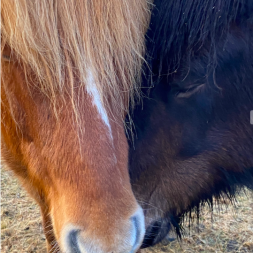
☮️ PEACE EDUCATION: METHODOLOGY OF THE XXI CENTURY in Reykjavik.
Discover new teaching perspectives related to peace education, which is extremely necessary in the world full o crises. During the creative and inspiring workshops, you will discover how using diverse techniques, tools and approaches can revolutionize educational processes, shaping the 21st century competences (communication, cooperation, critical thinking and creativity).
Description
- Programme
- The world has never needed peace education so much. Peace education is a challenge facing not only schools, but also societies locally, and globally. The most important assumptions and goals of peace education can be achieved by simply basing the didactic process on the principles of modern teaching philosophy and methodology within the framework of the lessons taught, as this is the next step in thinking about modern, effective, attractive didactics.
- Peace education is the next stage in the evolution of our thinking about teaching and learning strategies possible to implement in various school subjects. It is a new integrated educational model based on cognitive and constructivist concepts, as well as Universal Design for Learning (UDL) or Universal Instructional Design (UID), where diversity is the norm and the teaching process should be adapted to the different abilities and needs of learners.
Learning objectives
- Understanding the principles and methodologies of peace education,
- Exploring the role of peace education in addressing various crises facing today’s schools
- Reflecting on the role of peace education in the educational process and school community functioning,
- Acquiring practical strategies and methods for fostering inclusive classrooms,
- Engaging in collaborative activities to create a supportive and safe atmosphere for learning,
- Acquiring strategies for conflict resolution in schools,
Gaining practical skills to create teaching tools and materials to support peace education in every day school practice.
Benefits for Learners:
- Gain a deep understanding of peace education principles and methodologies,
- Recognize the importance of a safe learning environment for overall well-being,
- Explore an innovative and inspiring method (photovoice) for teaching peace education.
- Develop strategies for seamlessly integrating peace education concepts into existing subjects.
Methodology & assessment
Assessment is non-graded and focuses on participant engagement and reflection. Facilitators provide feedback on group activities, collaborative projects, and individual contributions. The course concludes with group reflection sessions, allowing participants to share insights, evaluate learning outcomes, and identify next steps for implementation.
Every participant needs to complete a Needs Analysis before taking the course.
Materials, digital tools & other learning resources
The course utilizes a range of materials and digital tools, including printed guides, peace education toolkits, and interactive resources for diversity and inclusion. Digital tools such as collaborative platforms and photo-editing apps are used in the Photovoice method, allowing participants to document experiences visually. Participants receive a comprehensive packet of ready-to-use materials, online resources, and guidance for continued implementation.
Certification details
- Certificate of Attendance in line with Erasmus quality standards
- Europass Mobility Document
- Learning Agreement
- Learning Agreement Complement
- ✅ Confirmed session: August, 17th - 23rd
- 🎓 TRAINER: Marta Margiel, Assistant professor and academic teacher at the Faculty of Humanities, the University of Silesia, Ph.D. in humanities: https://spatiateacheracademy.eu/?page_id=2738
- We always reply to every enquiry on ESEP. Please check your SPAM folder.
Pricing, packages and other information
-
Price:560Euro
-
Course package content:
The total cost of the seven-day course is €560 (€80 per day). This includes:
- Tuition fees
- Course materials
- One guided city tour
- Coffee breaks
- All required documentation (certificates, Learning Agreement, Learning Agreement Complement, Europass Mobility document)
Additionally, we offer optional cultural trips during the course, which are arranged with a trusted local company. Details and pricing will be available two months before the course begins.
-
Additional information:Description of the services and activities included in the course package (such as accommodation, meals, transport) or available at extra cost.
-
Cancellation & changes:
Cancellations must be communicated via Mail (courses@spatiateacheracademy.eu).
Enrolled students who cannot take part in the course for any reasons can always be replaced by another participant from the same organization, free of charge.
If students cancel at least 3 months before the beginning of the course(s), SPATIA will refund the entire amount.
In case of force majeure the Foundation will offer the possibility to change dates and course to students free of charge.
-
Additional information:The options and conditions for change and cancellation, and the policy in case of unforeseen circumstances (force majeure).
Additional information
-
Language:English
-
Target audience ISCED:Primary education (ISCED 1)Lower secondary education (ISCED 2)Upper secondary education (ISCED 3)
-
Target audience type:TeacherHead Teacher / PrincipalTeacher Educator
-
Learning time:25 hours or more
Upcoming sessions
Past sessions
More courses by this organiser
✅ 📸 Humanistic Contextual Education - the Power of Art 🖼 in Funchal, Madeira.


